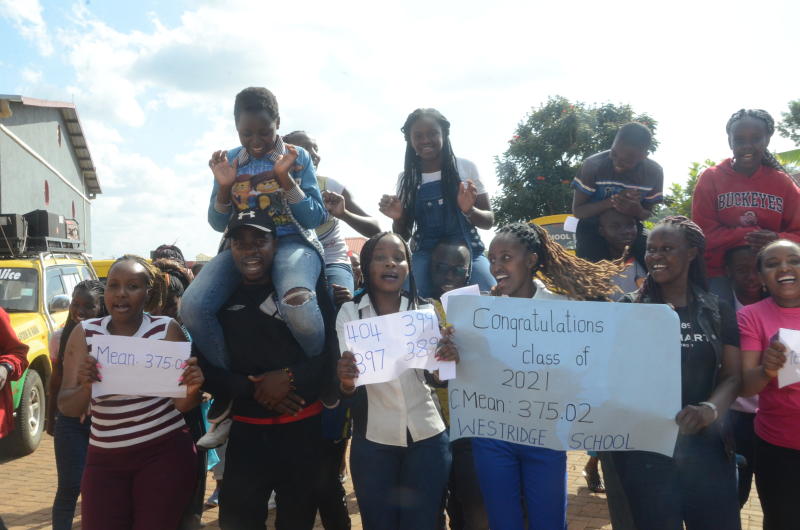×
The Standard e-Paper
Stay Informed, Even Offline

Parents, candidates and teachers of Westridge School, Thika Greens celebrate shortly after receiving KCPE results for the year 2021. [Fidelis Kabunyi, Stadnard]
With KCPE results for more than 1.2 million candidates released, focus now turns to Form One selection.